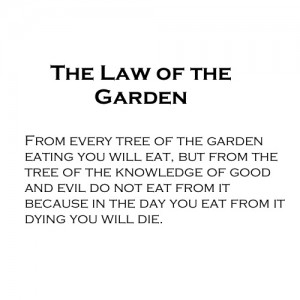The First Dispensation
The Dispensation of Innocence
The first dispensation begins when God creates mankind and places him in a garden in Eden, Genesis 2:8. Its title comes from the characteristics of the dispensation. Humans are in a state of being innocent, not knowing good (that which is beneficial) or evil (that which causes calamity).
Adam is given instruction by God concerning the standard by which he and those of the household are to live.
And Yahweh Elohim commanded unto Adam saying, “From every tree of the garden eating you will eat, but from the tree of the knowledge of good and evil do not eat from it because in the day you eat from it dying you will die.”, Genesis 2:17
Failure of the Dispensation
Adam chose to knowingly disobey God by eating from the tree of the knowledge of good and evil.
And the woman saw that the tree was good to eat and that it was desirable to the eyes, and a tree of delight to make wise, then she took from its fruit and she ate and she gave also to the man with her and he ate, Genesis 3:6
And Adam was not deceived, but the woman was thoroughly deceived having come to be in a transgression, 1 Timothy 2:14
The Result of Failure
- The woman will have to work hard and now will have pain in child birth and her desire will be unto her husband.
- The man will have to work hard to cultivate the earth for food.
- Adam’s nature becomes bent due to his determination to disobey God.
- Adam and Eve die spiritually – they are separated from God in their spirit.
- Adam […]
